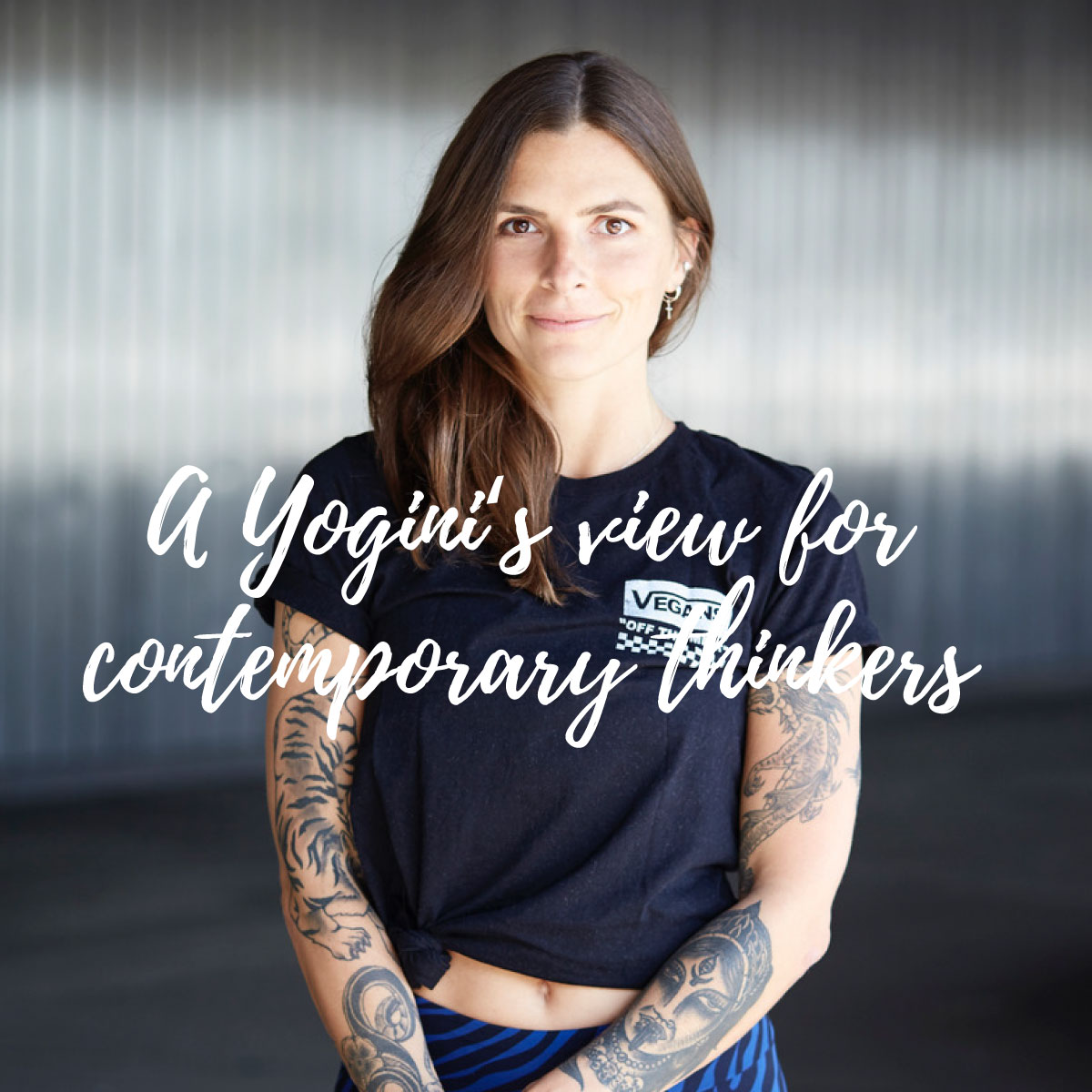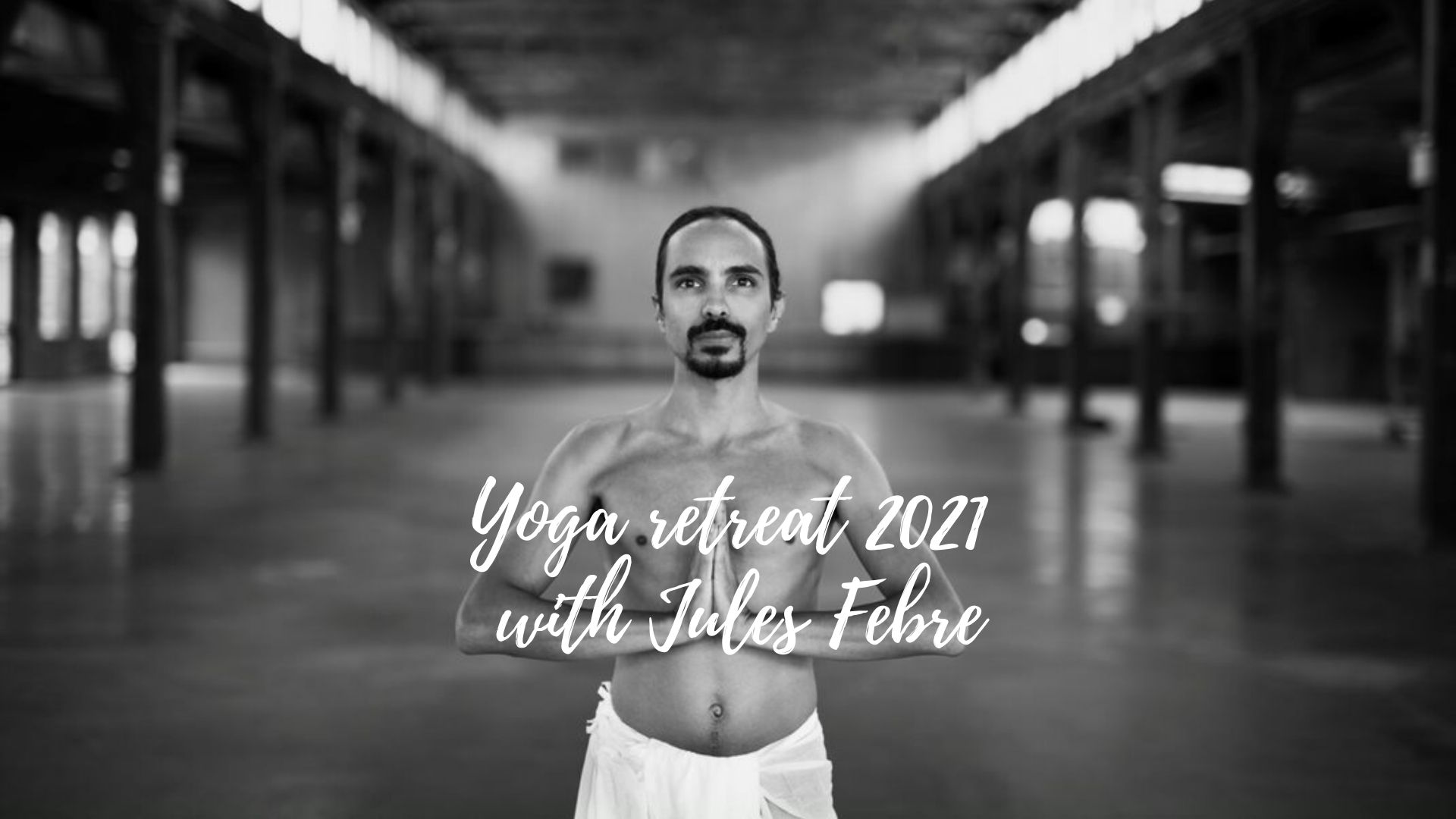
Abiding in uncertainty | by Martyna Eder
It’s the end of the world as we know it- and we don’t feel fine. Desperately clinging to the known and comfortable is a very human thing to do, and I guess in one way or the other we all got hooked by that, lately. A lot of people lost their livelihood, loves ones- or even their own lives and it’s important to acknowledge that. A lot of primordial fear has been triggered and maybe we are just experiencing a global collective emotion. Which is an interesting thing, when it comes to spiritual practice, because in some way we are all having the same or a similar emotional experience, regardless of how different we are, or we think we are.
Being able to relate to the suffering of others is the first step when it comes to practicing compassion, which again is the first step to spiritual awakening. We are stuck with ourselves, many ways of distraction have been taken away from us and something in wants to immediately react like a kid whose toys have been taken away. With defiance and despair we are trying to find somebody to blame and we are becoming most creative in finding ways to distract us in the same way as we usually do, but in new ways. We consume, we post, we like and dislike and we want to “self improve” by totally bypassing to even briefly be with the self we want to improve.
This is a chance for us to lean into our fears rather than eternally running away from them and this is the chance for us to intimately get to know our tendencies and structures.
Opening up to our anxiety and our suffering is very courageous act, but also a most necessary one. If we show up for this challenge and if we take the chance to abide with all these raw and primordial emotions this crisis has triggered in basically all of us, we have the chance to not only practice compassion for ourselves, but for everybody. If I feel lonely and anxious, chances are that a large number of other beings feel the same way, too. By opening up to my own feelings and by softening rather than closing down, I will be able to expand this softness and openness to others, too.
Maybe the world has sent us to our rooms to deal with ourselves so that at some point we will finally be ready to deal with others in a compassionate and kind way.
Because how we treated other beings brought us here in the first place.
And it’s the same thing that can bring us out.
What the play?!? | by Sybille Schlegel
If you happen to read it: My dear friend, Sophie! Thank you so much for bringing me into that yoga class in 2004. Really. I mean it. From the bottom of my heart. As you know, I sticked to it and my life grew more and more to be a yoga-lifestyle. Today, it is my business, my interest, and the love of my life. Again, thank you for bringing me in touch…
There is a quote my teacher Manoramā (www.sanskritstudies.org) uses very often from her teacher, that keeps coming into my mind since March, 14th: „You don’t need to practice every day. But when you need it: you wish had you practiced every day.“ That very day marked my personal contact with the measurements that followed the pandemic crisis with the name of a light beer – Corona: A party I planned to have fun at got cancelled. Bummer. The following week, my partner Andreas Ruhula and I had to close down our beloved yoga school in Mainz. The Good Vibes Yoga Fest, that I co-organize, got called off. My daughter stayed home instead of going to school. We couldn’t see my parents anymore as they fall into the group of high risk. And we gave them our dog to keep up their spirits. For me, March 14th became the „The Day of Change“.
From a yogic point of view this is a silly thing to say, right? We studied the wisdom of the Vedas, Upanishads, Gitas, and Sutras. We know, that the outer world or manifest universe is subjected to constant change. We know that permanency is only and exclusively found in the inside (wherever that may be). We know therefore that every day is a „Day of Change“, every hour, every minute, every blink of an eye…
The universe knows no normal
This is what I started to contemplate since March 15th. The following two weeks, I didn’t do much more: I did my yoga in the morning. Ate, drank, showered. Sat somewhere and watched. To be honest, I quite enjoyed that prescribed break in my usually very busy life. Quickly I noticed that it wasn’t really helpful for my inner peace to constantly consume the news or social media. So I limited that to a reasonable amount. Lucky for me, I own a garden, which seemed to burst itself in blooming and blossoming, now that I was there to appreciate it. Instead of the phone I grabbed the Gita. Read it, chanted chapter 2 over and over again (very low voice as my neighbors already consider me a geek… although a loveable one). I felt like in a bubble of Stillstand. A feeling everyone can relate to who has spend some time at Triopetra. No urge, no need, no schedule. I caught myself immersing in that energy of pause. My little garden became a center of concentric movement that was there but had no impact on me. Did I move into ignorance? I did not. Instead I talked to so many people on the phone. Listened to their sorrows and fears. To their astonishment. Reflected my own sorrows, fears, and feelings. Meditated. Watched.
To control or not to control is the question
It came down to one question: How can I/we adjust into this situation of uncertainty? The yogic wisdom we all are studying is quite helpful in sorting out what we are actually dealing with here: The Gita explaines clearly that we are not in control of anything in the manifest realm. Every movement happens due to the movement of energy, aka the gunas. There is movement toward agitation, movement towards inertia, completed by the notion of balance. Described poetically as a dance or a play. (And if you relax into that knowledge, there is some harmony felt, isn’t it, Sophie? The movement of sun, the moon waxing and waning, the change of the seasons, the blossoming, the decay…).
As beings possessing an energetic physical body we move within this pond of energy as part of its general movement. Something we clearly enjoy while doing Asana or Vinyasa moved by the breath. Yet, the body was given a mind – a subtler energetic body – to serve its needs of survival throughout its incarnation. To accomplish this task in evolutionary circumstances that seemed rather hostile, the mind developed the capacity to store information. This memorized database enabled the body-mind to rely on experience when coping with situations, which saved a lot of energy. And who knew, when the next piece of food would be availabe? In this, the mind functions like a computer: Collecting data, matching incoming information with the data stored, using algorithms in order to create a strategy of action. A strategy that has a feeling of reliability due to past experience.
Fair enough. Yet…
Strategy of the mind is due to past experience
It could have been so easy for us: enjoying our natural state of moving with the energy, using the mind when necessary, staying aware of what is. For some reason, most of humanity lost that ability. The mind took over command in its attempt to prolong the lifespan of its body (and therefore itself). Like the computer system taking over Enterprise. But like in the series, algorithms have a flaw: They can only work with what they already contain or have come to know (The author is aware of algorithms with the ability to learn, however. As can the mind). So it was really helpful that Captain Kirk used his skills of spontaneous intuition to reconquer the bridge. In yogic terms, the restless activity of the mind which desperately tries to match data in any situation that occurs, should be calmed down in order to increase our ability to stay in the flow of events. Here, the often quoted notion of detachment comes into the scene: Attachment is the attempt to hold on to something implying a feeling of steadiness. Yet, this steadiness is an illusion. And as we keep learning that we cannot hold tight of anything in the outer world, we develop fear of loss. Which, according to the Yogasutra, stems from the misunderstanding that is described above and supports our likes, dislikes – as well as our understanding of who we are.
Attachment is fake steadiness
Detachment on the other hand nourishes the flowing with the energies. Sri Nisargadatta Maharaj states in his book „I AM THAT“, that we are like a river flowing inbetween the banks of pleasure and pain. Everything would be ok, if we just keep flowing. Watching them come and go. The problem arises, says Maharaj, when we try to hold or attach to one spot at the banks. The power of the flow makes it difficult, the reality of change impossible. So we suffer. And not only do we feel fear, anger, or grief: We take it personally as our like/dislike-self seems under attack. A little bit of these contemplations made me smile, when I noticed my fears of being alone, my anger facing the difficulties to make living (although again lucky enough: my partner in crime has done an extraordinary job in bringing our teachings online), my grief of having lost something that I couldn’t even quite put into words…
But every morning on the mat, I remembered myself to be still there, did I feel my heart being untouched from this. Did I breathe the love that bridges every pit that seems to open so I could fall into it. (As you might notice, Maharaj’s book is part of my daily practice now too…).
Love is the bridge over troubled waters
*This subline is based on the wisdom of Sri Nisargadatta Maharaj and Simon & Garfunkel.* It is a beautiful statement and a great practice: Stay kind and loving as much as possible. To yourself, if necessary. Nurture your body with good food and tea. Wear soft fabric, when in fear. Use blankets and candles to create a soothing atmosphere around you. I do all of that. (Told you I was a geek). Be kind to others: listen, comfort, calm down. More importantly, use your practice to feel your heart. As Krishna says to horror-stricken Arjuna in the Gita. As your heart knows what to do. Always. Even against the odds. As your heart is always complete. As your heart makes you feel the real steadiness, that you and I long for. Especially, in times when the constant changes becomes so obvious. Let’s try to acknowledge all feelings that rise so we can finally enter compassion and love – and with an open heart see less problems and more possibilities.



